Thread: There& #39;s a remarkable back-and-forth about predictive policing and racial profiling in today’s Fourth Circuit ruling from United States v. Curry.
Opinion here: https://www.ca4.uscourts.gov/opinions/184233A.P.pdf">https://www.ca4.uscourts.gov/opinions/...
Opinion here: https://www.ca4.uscourts.gov/opinions/184233A.P.pdf">https://www.ca4.uscourts.gov/opinions/...
The en banc court ruled 9-6 that the 4th Amendment’s exigent circumstances doctrine did not permit police to conduct a suspicionless stop/pat-down of defendant Billy Curry, who was simply walking near the scene of a shooting in Richmond. Order suppressing evidence affirmed.
Judge Wilkinson, in dissent, argues that the majority& #39;s decision "deliver[s] a gut-punch to predictive policing" techniques, including the "hot spot policing" that Richmond PD relied on in its response to the shooting.
Wilkinson wonders if "impractical legal regimes will drive police officers from disadvantaged communities" and says the court "effectively forecloses the tradeoff— faster responses for fuller information—that innumerable cities have opted for in making their streets safer."
Three different colleagues—Chief Judge Gregory, Judge Wynn, and Judge Diaz—write concurrences in response to Wilkinson. They are not impressed.
First, Gregory highlights "a central paradox of the African American experience: the simultaneous over- and under-policing of crime." Wilkinson, he writes, "chooses to focus largely on one dimension of this paradox, ignoring the details of the familiar perils of over-policing."
Gregory rejects Wilkinson& #39;s "gut-punch" line. He questions (through citations) whether predictive policing is "a high-tech version of racial profiling" and poses Fourth Amendment problems. Still, he believes it can be used "in good faith with constitutional principles."
Next, Wynn dings Wilkinson& #39;s "laudatory treatment of predictive policing metrics," noting significant shortcomings in the literature on predictive policing and the Supreme Court& #39;s recent (if regrettable) skepticism of social science studies in Gill v. Whitford.
Wynn goes on: "Justifying predictive policing on the policy basis that neighborhoods—whether termed & #39;violent crime locales& #39; or & #39;high-crime areas& #39;—& #39;might welcome [it]& #39; still results in … those communities being accorded fewer constitutional protections than … other communities."
"Such an outcome fails as a matter of law," Wynn explains. "We may not treat citizens as second-class simply because they live in areas that my good colleague calls & #39;violent crime locales.& #39;"
"We must be mindful of the potential for new police technologies to erode constitutional protection," Wynn adds. "[O]ur analysis must stay rooted in constitutional principles, rather than turn on naked policy judgments" about "novel police techniques."
Finally, Judge Thacker (joined by Judge Keenan) writes that she "cannot sit silent in the face of Judge Wilkinson’s dissent. In my view, the use of predictive policing, which Judge Wilkinson endorses, is little more than racial profiling writ large."
"[P]redictive policing is not the panacea Judge Wilkinson professes," Thacker writes, and "has been shown to be, at best, of questionable, effectiveness, and at worst, deeply flawed and infused with racial bias."
Thacker again: "Technology cannot override human flaws. It stands to reason that any computer program or algorithm is only as good as the data that goes into it." And in this context, the data is "infected with years of racial bias."
Thacker: "No fact in this case ever suggested [Curry’s] involvement in the commission of the crime under investigation. And the majority’s enforcement of his constitutional rights is the shield that will protect him and others from the bleak future imagined by Judge Wilkinson."
So this is a fascinating exchange on predictive policing and racial profiling playing out in the concurrences/dissents. And it& #39;s encouraging to see judges highlighting the biases, shortcomings, and dangers of predictive policing—even if not everyone on the bench gets it.
Some related work of note by @EPICprivacy:
EPIC Obtains DOJ Report on Predictive Policing and AI
https://epic.org/2020/03/epic-obtains-doj-report-on-pre.html
EPIC">https://epic.org/2020/03/e... Pursues Information About Predictive Policing Programs
https://epic.org/2020/04/epic-pursues-information-about-1.html
Algorithms">https://epic.org/2020/04/e... in the Criminal Justice System: https://epic.org/algorithmic-transparency/crim-justice/">https://epic.org/algorithm...
EPIC Obtains DOJ Report on Predictive Policing and AI
https://epic.org/2020/03/epic-obtains-doj-report-on-pre.html
EPIC">https://epic.org/2020/03/e... Pursues Information About Predictive Policing Programs
https://epic.org/2020/04/epic-pursues-information-about-1.html
Algorithms">https://epic.org/2020/04/e... in the Criminal Justice System: https://epic.org/algorithmic-transparency/crim-justice/">https://epic.org/algorithm...

 Read on Twitter
Read on Twitter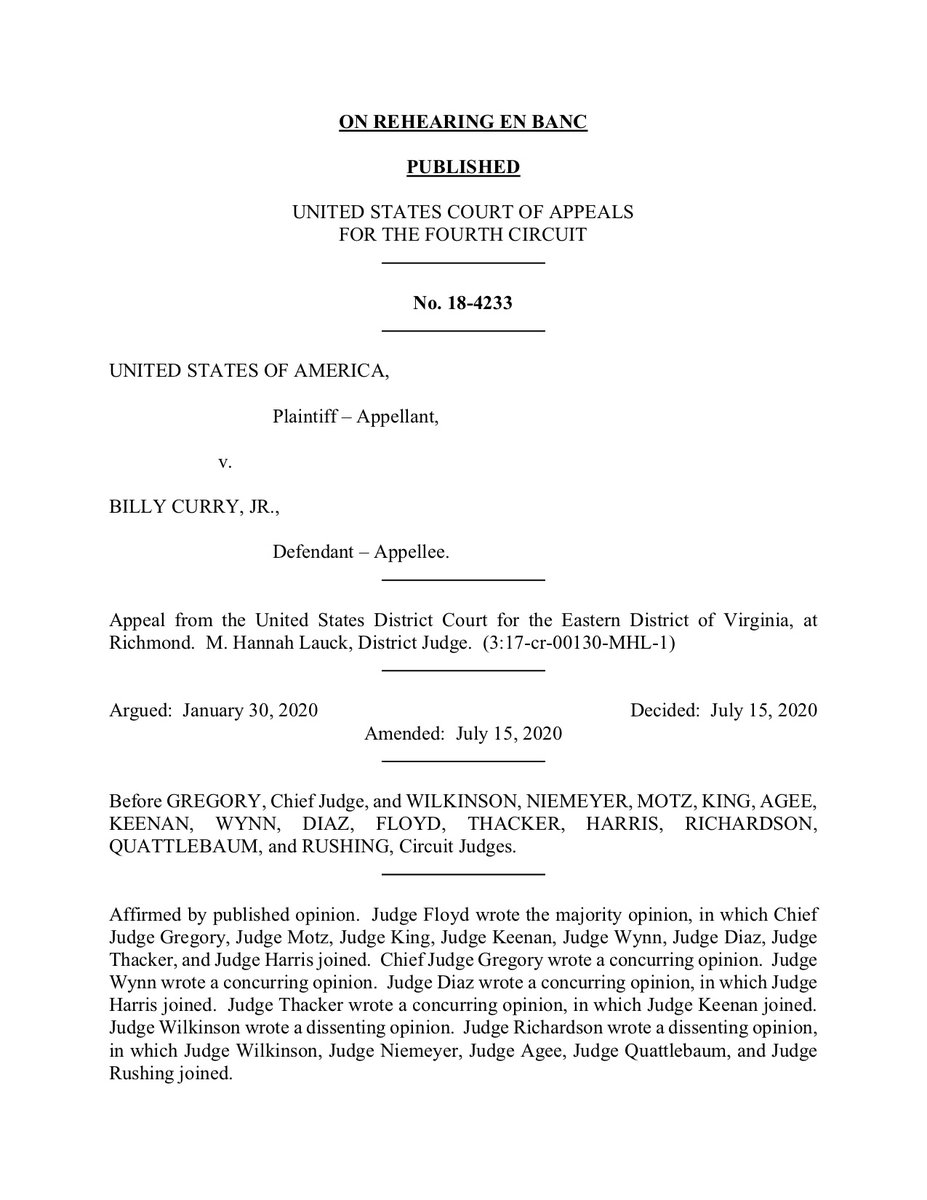


![Judge Wilkinson, in dissent, argues that the majority& #39;s decision "deliver[s] a gut-punch to predictive policing" techniques, including the "hot spot policing" that Richmond PD relied on in its response to the shooting. Judge Wilkinson, in dissent, argues that the majority& #39;s decision "deliver[s] a gut-punch to predictive policing" techniques, including the "hot spot policing" that Richmond PD relied on in its response to the shooting.](https://pbs.twimg.com/media/EdBNEjMXkAArhql.jpg)
![Judge Wilkinson, in dissent, argues that the majority& #39;s decision "deliver[s] a gut-punch to predictive policing" techniques, including the "hot spot policing" that Richmond PD relied on in its response to the shooting. Judge Wilkinson, in dissent, argues that the majority& #39;s decision "deliver[s] a gut-punch to predictive policing" techniques, including the "hot spot policing" that Richmond PD relied on in its response to the shooting.](https://pbs.twimg.com/media/EdBNIoxXsAAO_ZY.jpg)
![Judge Wilkinson, in dissent, argues that the majority& #39;s decision "deliver[s] a gut-punch to predictive policing" techniques, including the "hot spot policing" that Richmond PD relied on in its response to the shooting. Judge Wilkinson, in dissent, argues that the majority& #39;s decision "deliver[s] a gut-punch to predictive policing" techniques, including the "hot spot policing" that Richmond PD relied on in its response to the shooting.](https://pbs.twimg.com/media/EdBNJlrWkAA-hMv.jpg)


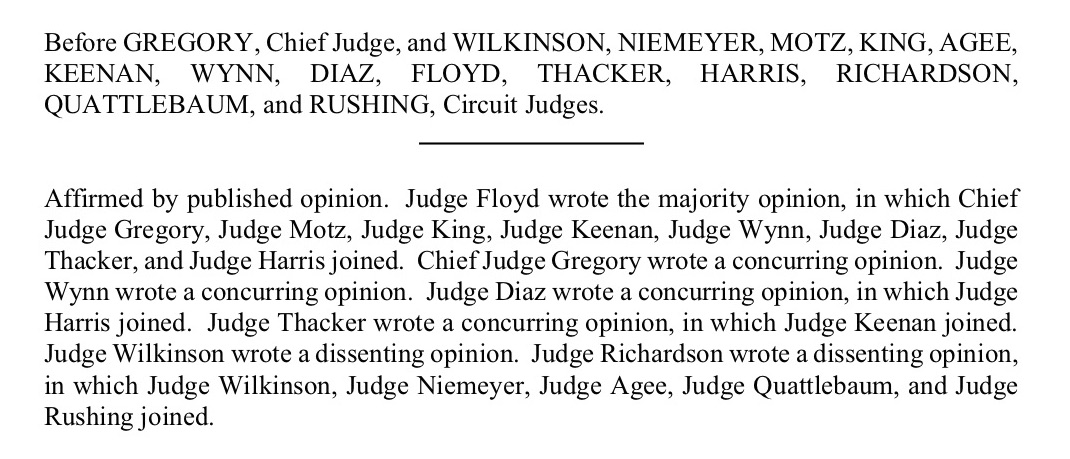
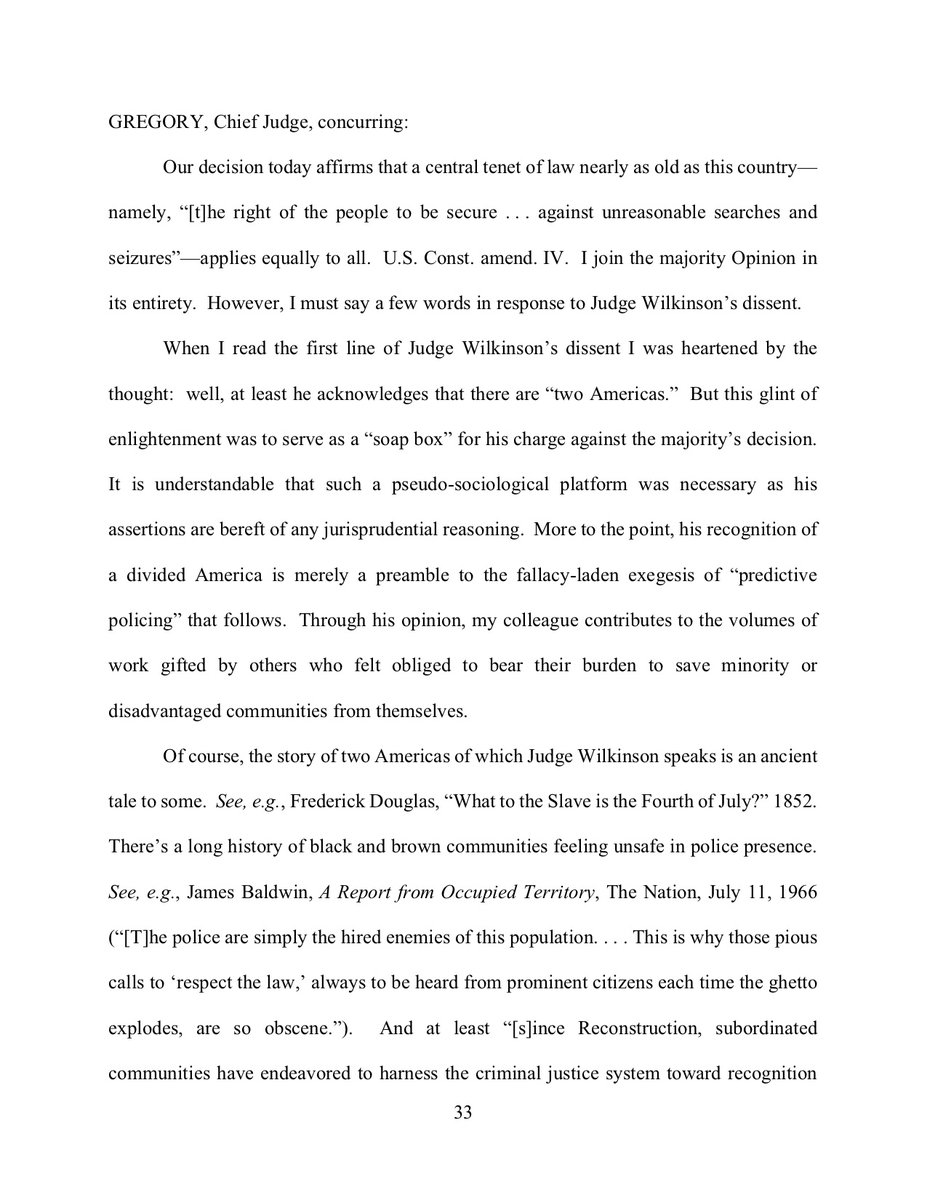
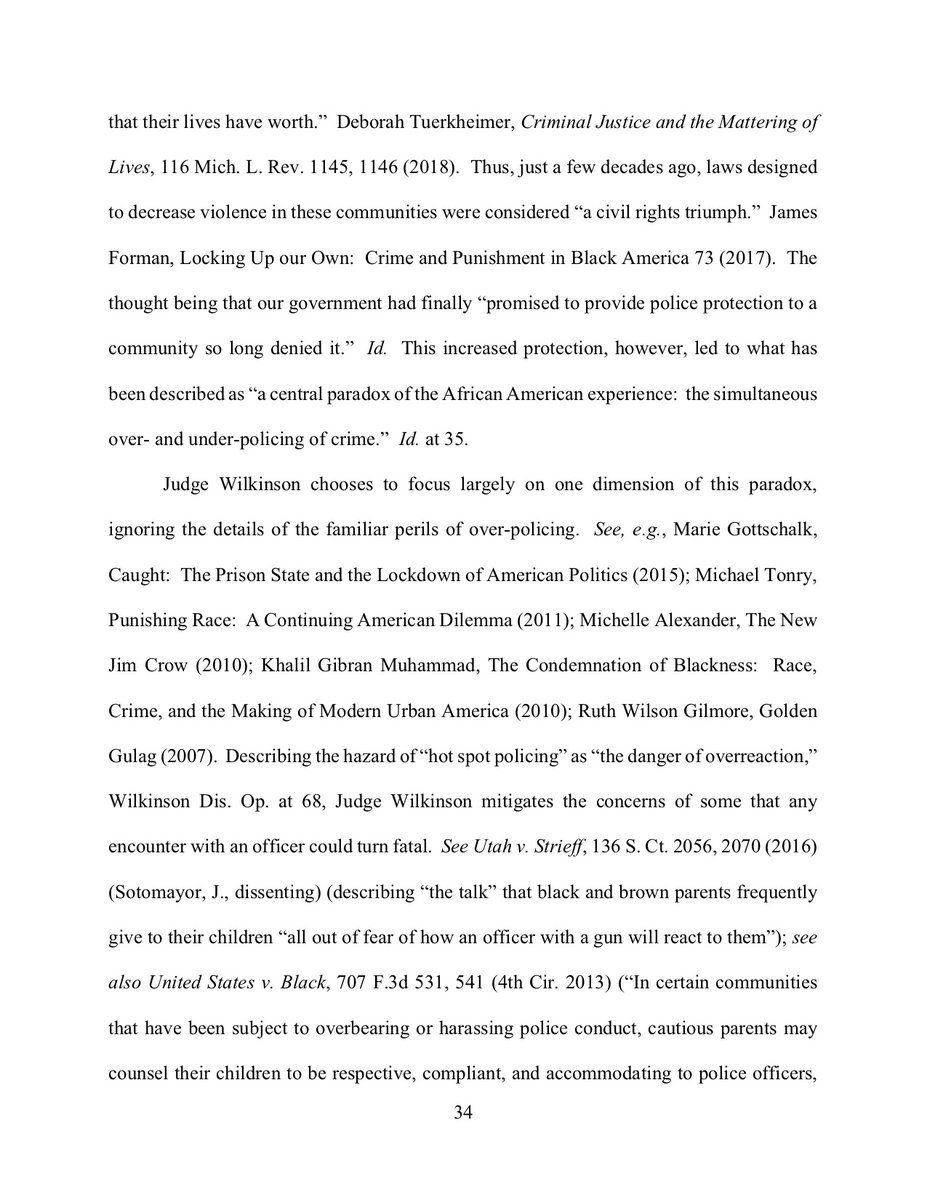
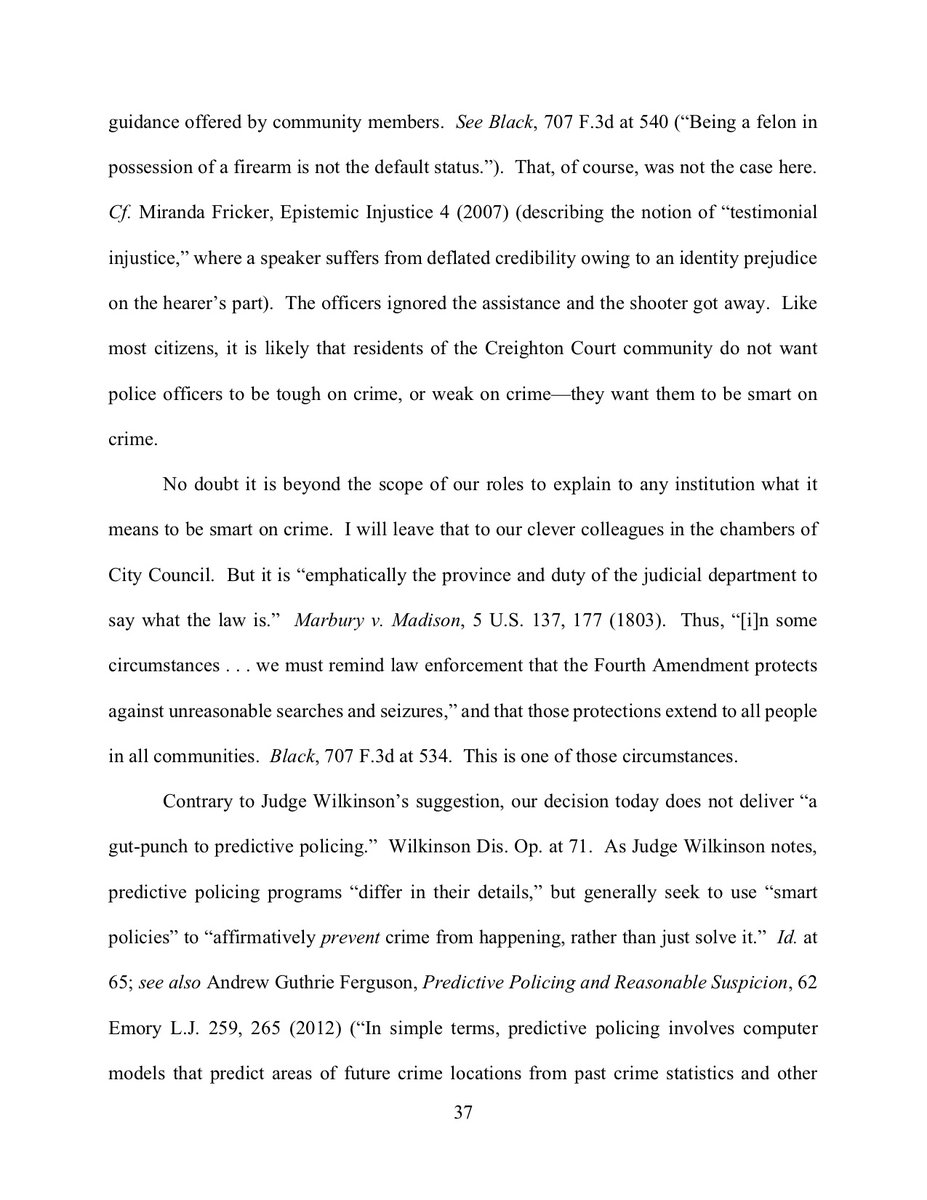

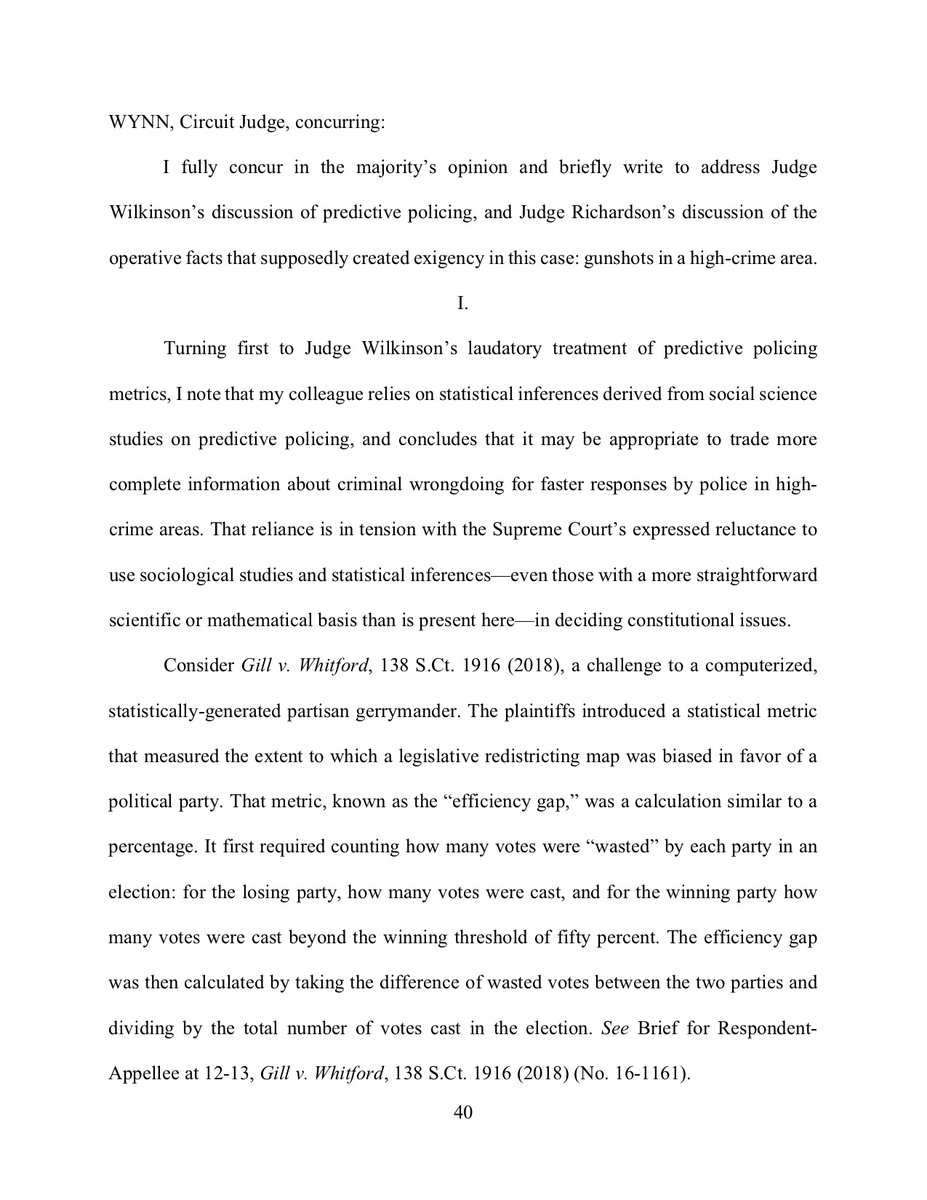
![Wynn goes on: "Justifying predictive policing on the policy basis that neighborhoods—whether termed & #39;violent crime locales& #39; or & #39;high-crime areas& #39;—& #39;might welcome [it]& #39; still results in … those communities being accorded fewer constitutional protections than … other communities." Wynn goes on: "Justifying predictive policing on the policy basis that neighborhoods—whether termed & #39;violent crime locales& #39; or & #39;high-crime areas& #39;—& #39;might welcome [it]& #39; still results in … those communities being accorded fewer constitutional protections than … other communities."](https://pbs.twimg.com/media/EdBLdWxWkAEbOIQ.jpg)
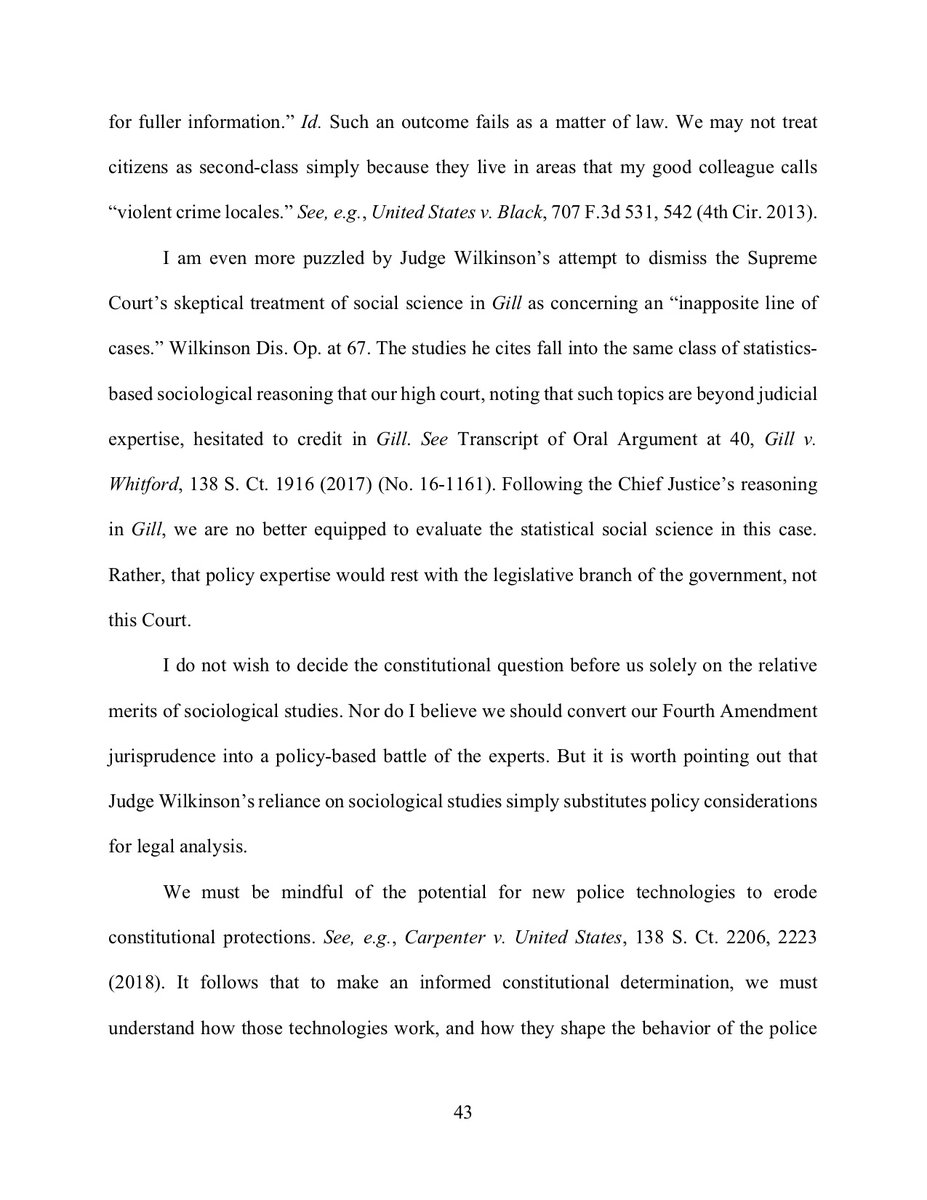
!["We must be mindful of the potential for new police technologies to erode constitutional protection," Wynn adds. "[O]ur analysis must stay rooted in constitutional principles, rather than turn on naked policy judgments" about "novel police techniques." "We must be mindful of the potential for new police technologies to erode constitutional protection," Wynn adds. "[O]ur analysis must stay rooted in constitutional principles, rather than turn on naked policy judgments" about "novel police techniques."](https://pbs.twimg.com/media/EdBMD3WXYAAAank.jpg)
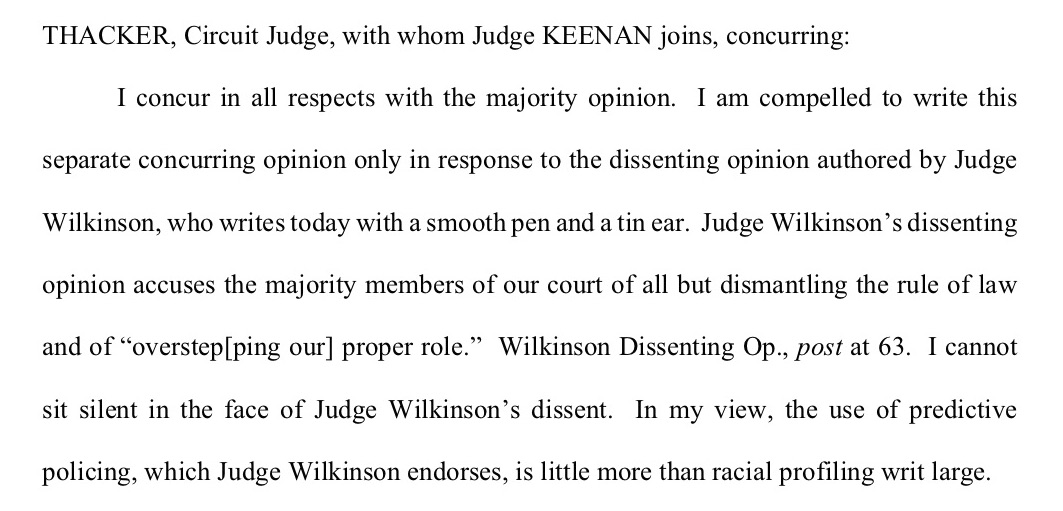
!["[P]redictive policing is not the panacea Judge Wilkinson professes," Thacker writes, and "has been shown to be, at best, of questionable, effectiveness, and at worst, deeply flawed and infused with racial bias." "[P]redictive policing is not the panacea Judge Wilkinson professes," Thacker writes, and "has been shown to be, at best, of questionable, effectiveness, and at worst, deeply flawed and infused with racial bias."](https://pbs.twimg.com/media/EdBOCoIWAAE8tAS.jpg)
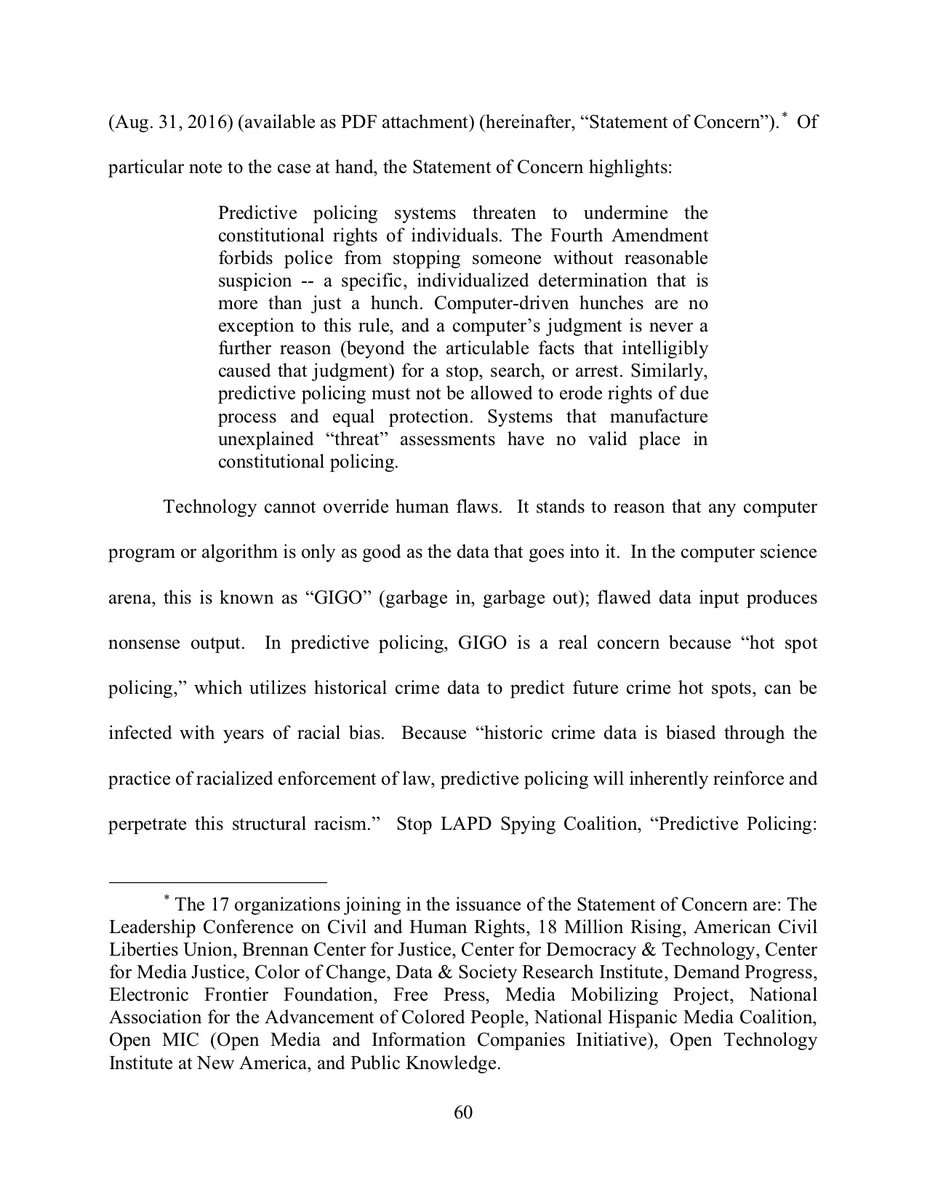
![Thacker: "No fact in this case ever suggested [Curry’s] involvement in the commission of the crime under investigation. And the majority’s enforcement of his constitutional rights is the shield that will protect him and others from the bleak future imagined by Judge Wilkinson." Thacker: "No fact in this case ever suggested [Curry’s] involvement in the commission of the crime under investigation. And the majority’s enforcement of his constitutional rights is the shield that will protect him and others from the bleak future imagined by Judge Wilkinson."](https://pbs.twimg.com/media/EdBMyksXsAA4wFf.jpg)


